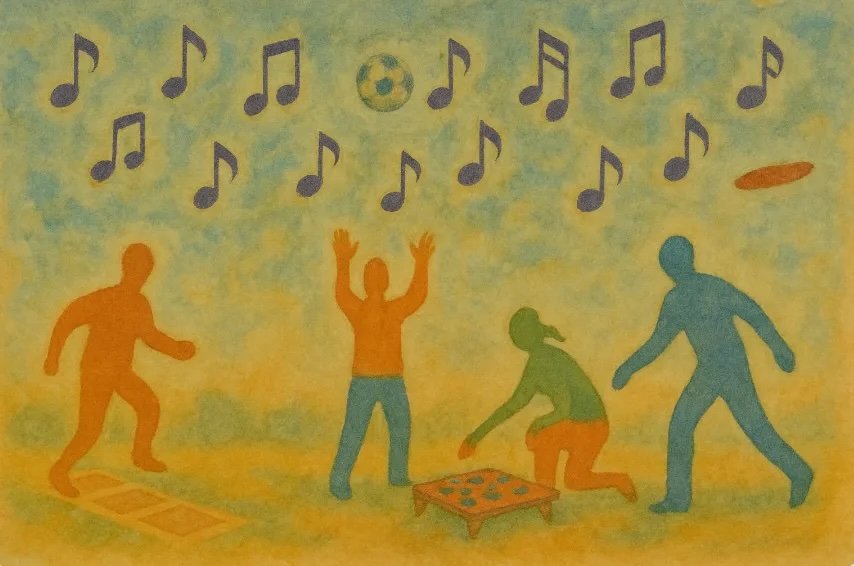The Importance of Ending on a High Note
One phrase that you’ll hear regularly in my household — whether during a playdate, family gathering, or vacation — is “ending on a high note.”
It’s mostly a simple desire to end things positively, and focusing our attention on achieving that end, but it’s probably also a reaction to having experienced occasions with more disappointing finishes. I can remember several such times, like when an older relative fell on her way out to her car as she was saying goodbye (this has actually happened twice), or when arguments have sprouted among family members with only a few moments to go.
The phrase itself originally comes from music, where it refers to concluding a piece or performance with a literal high-pitched note, often associated with energy, excitement, or a climactic finish. More broadly, it refers to the magnified power of the final moments of any experience.
We certainly see this in speeches, where people try and land their points one final time in as memorable a way as possible. In Martin Luther King’s “I have a dream” speech, for example, you might remember he ends powerfully with:
“And when this happens, when we allow freedom to ring, when we let it ring from every village and every hamlet, from every state and every city, we will be able to speed up that day when all of God’s children, Black men and white men, Jews and Gentiles, Protestants and Catholics, will be able to join hands and sing in the words of the old Negro spiritual: Free at last! Free at last! Thank God Almighty, we are free at last!”
Similarly, the final episode of a show can make it legendary, like in “Breaking Bad” and “The Sopranos.” And conversely, a bad ending can overshadow everything before it — Game of Thrones Season 8 comes to mind.
The science behind it
Is this just a feeling, or is an ending really more important than what comes before it?
A lot of it, as you’ve probably intuited, is due to what’s called the Recency Effect: when recalling a sequence of events or information, people best remember the items at the beginning and at the end. The end is freshest in our short-term memory, making it easier to recall.
There’s also the Peak-End Rule (identified and named by Daniel Kahneman). What Kahneman saw is that people judge experiences based on their most intense moment (the peak) and on the ending moment, rather than the full duration. If an event ends on a high note, people are more likely to remember it positively, even if the middle was average or unpleasant.
That’s not all — there’s other reasons too. One is dopamine. Heightened emotions at the end of an event (e.g., excitement, relief, closure) trigger the release of dopamine, which strengthens memory formation. And then there’s also the human urge to find meaning in our lives. We naturally seek narrative closure — and a satisfying ending helps make sense of an experience.
Implications for families
This notion of “ending on a high note,” as I mentioned, is a mainstay in our home. We’ve simply experienced enough subpar endings (read: toddler meltdowns) that we’ve decided it’s worthwhile to preempt those tailspins. We tend to leave from big family events while our kids are still feeling pretty good (you may have heard the phrase “Go before they blow”), even if it means we’re missing out on the last few minutes.
It’s not just preventing the bad, though; it’s also about creating the good. It’s why we like to walk people to the door and give a nice goodbye. It’s a similar sentiment to what I once read in “Bringing up Bebe,” in which Pamela Druckerman explains that saying “bonjour” and “au revoir” is so important in French culture because it acknowledges each other and makes people feel seen and appreciated.
At Graddha, we try and bring this same feeling to our family meetings. When things are going well, a special final exercise can seal the experience — like a little sweetness at the end of a meal — and leave people with an extra jolt of togetherness and kinship. Even just going around in a circle and sharing something everyone has taken away from the time together can yield moments that are vulnerable (the importance of which we’ve written about previously) and uplifting.
And when there has been conflict or tension, ending on a higher note creates the opportunity to reorient towards connection, so that there is a foundation for progress beyond what’s going to happen in the room at that exact moment. You don’t have to resolve everything, but you can soften the exit.
Ask yourself:
Do you pay special attention to the final moments of your gatherings, meetings, and communications?
Have you ever had things “spiral” in the final moments?
What occasions do you have coming up where you might want to deliberately create a “high-note ending?”
We can’t control what goes on during every family trip, dinner, and meeting, and, indeed, what transpires is often unpredictable. But the ending? That, we can shape. And in the end, that’s what lasts.

